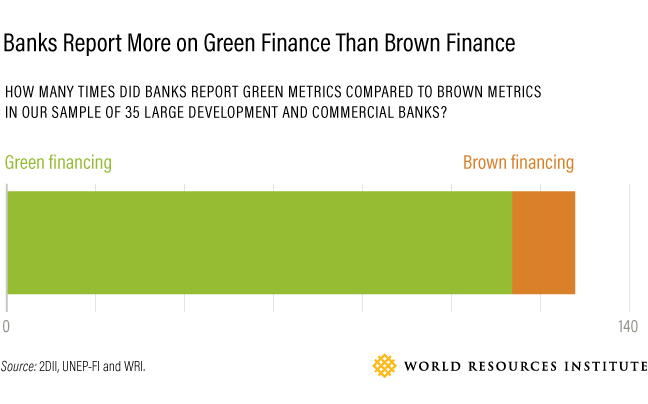Blog
Job Opportunity: Scope 3 Associate II, Greenhouse Gas Protocol
Job Opportunity: Project Coordinator II, Greenhouse Gas Protocol
Job Opportunity: Communications Manager I, Greenhouse Gas Protocol
Job Opportunity: Project Specialist, Greenhouse Gas Protocol
GHG Protocol to assess the need for additional guidance building on existing corporate standards
Update on Land Sector and Removals Guidance
The Greenhouse Gas Protocol is developing corporate-level Land Sector and Removals Guidance, building on the
New Greenhouse Gas Protocol Land Sector and Removals Guidance
The GHG Protocol is developing new guidance on how companies and organizations should account for greenhouse gas emissions and carbon removals from land use, land use change, bioenergy, and related topics.
Update on Greenhouse Gas Protocol Carbon Removals and Land Sector Initiative
WRI and WBCSD launched the GHG Protocol Carbon Removals and Land Sector Initiative in January 2020 to develop new GHG Protocol standards and guidance for corporate-level GHG inventories: Carbon Removals Standard, Land Sector Guidance, and Bioenergy Guidance. The new guidance will build on the Corporate Standard and Scope 3 Standard to explain how companies should account for these activities in GHG inventories.
Announcing New Online Courses on Greenhouse Gas Protocol Accounting Standards
The Greenhouse Gas (GHG) Protocol, developed by World Resources Institute (WRI) and World Business Council on Sustainable Development (WBCSD), sets the global standard for how to measure, manage, and report greenhouse gas emissions; these standards are used by thousands of companies to become more efficient, resilient, and prosperous organizations. Hundreds of industry professionals have learned greenhouse gas accounting from WRI experts through in-person and webinar trainings. Now, the same expert instruction is available to you on a low-cost and convenient e-learning platform. Online courses have been developed for the following GHG Protocol standards:
Now Published: Global Protocol for Community-Scale Greenhouse Gas Inventories 1.1
The updated Global Protocol for Community-Scale Greenhouse Gas Inventories 1.1 (GPC 1.1) o
Job Opportunity: Climate Taxonomy Specialist (Manager), WBCSD
WBCSD is hiring for a Climate Taxonomy Specialist (Manager) to join their Climate & Energy Team.
Webinar: Greenhouse Gas Protocol and Science-based Targets for Forest, Land and Agriculture (FLAG) | Mar. 3
Thank you for your interest in the Greenhouse Gas Protocol and SBTi Forest, Land and Agriculture webinar.
Many Companies Inaccurately Estimate the Climate Benefits of Their Products
Cold-water laundry detergents, fuel-saving tires, energy-efficient ball bearings, emissions-saving data centers. Corporations are increasingly claiming that their goods and services reduce emissions. But there is a big problem: These avoided emissions claims are often unverifiable or inaccurate.
New ICAT Policy Assessment Guides for Countries
The recently launched Initiative for Climate Action Transparency (ICAT) policy assessment guides, built in part upon the Greenhouse Gas Protocol Policy and Action Standard, offer a set of methodologies to help countries assess the impacts of policies and actions that reduce greenhouse gas emissions, achieve sustainable development outcomes and drive transformational change.
Join World Resources Institute at the Climate Leadership Conference, March 20-22 in Baltimore
Join us March 20-22 in Baltimore to connect with the nation’s thought leaders and decision-makers at the 8th annual Climate Leadership Conference. WRI is co-hosting Scaling Collective Action: Best Practices for Setting and Achieving SBTs in the Value Chain workshop on Wednesday, March 20th from 9:00 – 10:30 am.
GLEC Framework: a universal method for logistics emissions accounting
This week, the Smart Freight Center released the GLEC Framework, a guide for shippers, carriers and logistics service providers on how to report emissions from logistics operations. It is meant to be used in conjunction with the Corporate Standard, and it has earned the “Built on GHG Protocol” mark for its compliance with GHG Protocol’s requirements.
Request for Proposals: NDC Implementation Tracking Tool
World Resources Institute (WRI) seeks qualified assistance to develop a user-friendly tool to track implementation and effects of climate actions. Interested vendors should be prepared to submit a full proposal by January 25th, 2019, with aim to deliver the full tool by June 2019.
The World Is Counting on Banks to Deliver Climate Finance. Counting Their Progress Is No Easy Feat.
 Banks are connected to every part of the economy through their investing and lending activities. That means they play a crucial role in financing the transition to a low-carbon economy. The financial sector is increasingly aware of the need to shift capital flows away from companies and activities that contribute to the climate problem and into climate solutions.
Banks are connected to every part of the economy through their investing and lending activities. That means they play a crucial role in financing the transition to a low-carbon economy. The financial sector is increasingly aware of the need to shift capital flows away from companies and activities that contribute to the climate problem and into climate solutions.
New Program Launched to Advance Local Climate Initiatives in Cities Worldwide
A new program to help advance local climate initiatives in cities worldwide was launched today. The City Climate Planner program is being led by the Green Business Certification Inc. (GBCI) and was created by The World Bank Group along with C40 Cities, ICLEI - Local Governments for Sustainability, and World Resources Institute through funding provided by the Korea Green Growth Trust Fund.
Boulder Achieves Five Percent Reduction in Community Greenhouse Gas Emissions
The City of Boulder achieved a 5.2 percent reduction in community greenhouse gas (GHG) emissions in 2015 as compared to a 2005 baseline, according to an analysis of the most recently available data. This progress occurred during a time of economic and population growth in the city, magnifying the reductions even more.
















